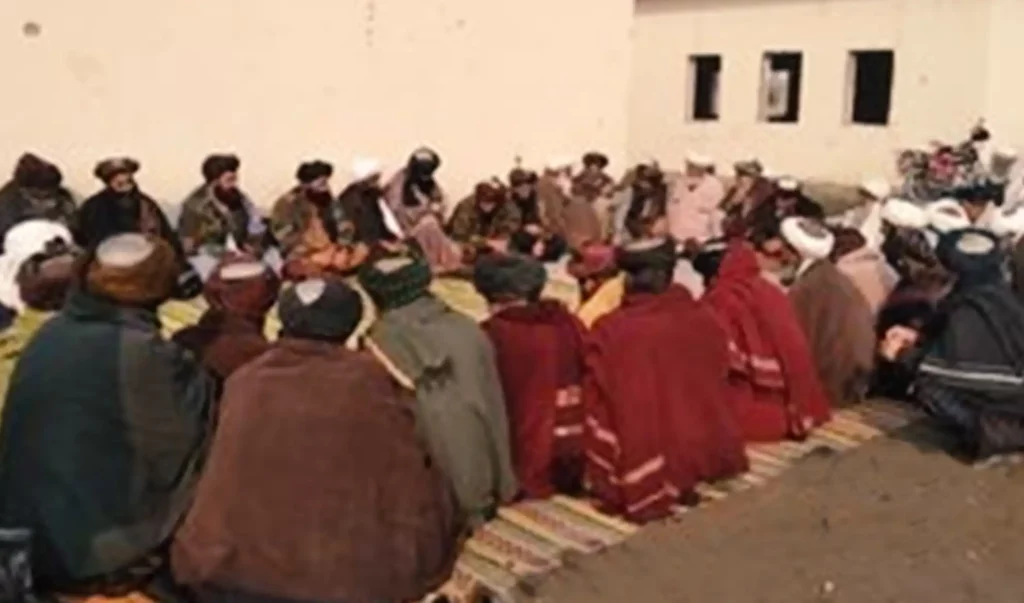QALA-I-NAW (Pajhwok): Forty-five disputes have been resolved through the mediation of ulema and tribal elders in southwestern Badghis province during the past one year, an official has said.
Experts stressed over the resolution of disputes through mediation and said the practice helped promote peace and the culture of co-existence in the society.
Although, there are judicial organs and institutions for dispute resolution in Afghanistan but Jirgas and grand meetings were another option for dispute resolution in the war-torn country and people used them effectively.
Through the same culture 45 disputes had been resolved in Badghis province in the past one year.
Badghis Borders and Tribal Affairs Director Mawlavi Mohammad Qasim Zameer told Pajhwok Afghan News legal responsibility of dispute resolution and similar issues was handed over to religious scholars and tribal elders.
He added during the past year they were able to resolve 26 complex and 19 less complex disputes. Some disputes remained unresolved from the past 10 years and were so complicated but they were settled and converted to friendship.
According to Mawlavi Zameer this pattern of dispute resolution could be executed in all provinces adding that ulema and elders could resolve public disputes.
Elders involved in dispute resolution said social culture is developed in a way that people obey what elder tell them.
Abdul Qadir Rasouli, one of the elders, told Pajhwok Afghan News most cases were linked to murder which were resolved by them and most enmities were converted to friendships.
“We resolved many issues even there were some cases that were unresolved from the past five or ten years and both parties were strong to take revenge but fortunately after the mediation by elders they have no issue now,” he said.
Referring to a complex issue, Rasouli said: “This year we resolved a dispute in which a man had killed his cousin. Both families turned enemies but fortunately through our mediation the dispute was resolved.”
Mohammad Naseem and Mohammad both were cousins and they disputed on the issue of chairmanship and as result Mohammad fired on Naseem and killed him, he said.
Local residents are thrilled at disputes resolution with the support of elders.
Abdul Rahman, the resident of Abkamri district, said he had a very complex issue but when he referred to the commission his problems was resolved.
He believed the most effective way for reconciliation were ulema and tribal elders and they could help resolved disputes.
After dispute resolution he said now he enjoyed cordial ties with people who were his strong opponents in the past and their disputed converted to friendship.
Bismillah, another resident of Qala-i-Naw who also had a dispute, said although his nephew lost his life in a traffic accident but elders managed to resolved their dispute.
He said most disputes are accidental and if not addressed on time they could cause long term enmity between the two sides.
Experts believe on dispute resolution though mediation.
University Teacher Abdul Wahid Parsa said the fact that elders and scholars lived in the same society so it is more effective to refer to them for dispute resolution and this practice has far reaching impact on society and people.
He urged ulema, scholars and elders should be given vital role in order to bring peace and stability to the society.
He believed if small and large issues are not resolved in a society this would forge the society towards instability and lawlessness.
Religious Scholar Noor Ahmad Hamid said that Islam was the religion of peace, stability forgiveness and tolerance.
For this purpose he said when there was any dispute Muslims strived to resolve them.
He added the religion of Islam promote individuals to a special place who adopted the policy of forgiveness and tolerance.
“Since Islam is the religion of peace and tranquility so we try to address every dispute complicated or simple,” he said.
nh







GET IN TOUCH
NEWSLETTER
SUGGEST A STORY
PAJHWOK MOBILE APP